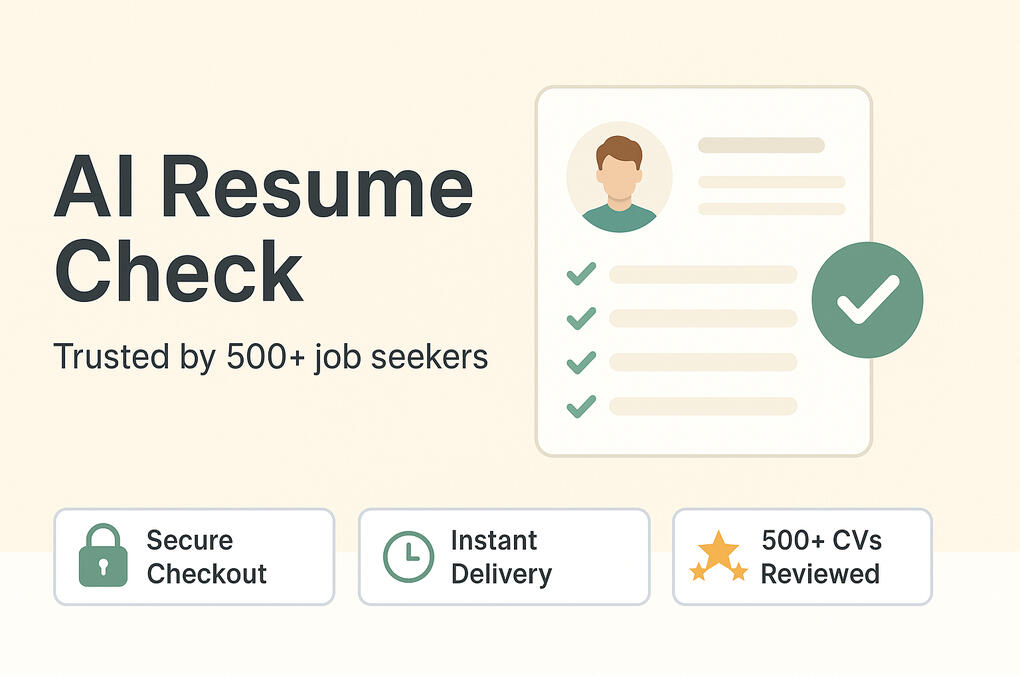
💼 Get Honest, Actionable Feedback on Your CV - for Just £1.99
Struggling to land interviews? Get quick, expert-backed feedback on your CV. Delivered to your inbox in minutes.
✏️ What You’ll GetText
Clear suggestions to improve your CV
Feedback tailored to the job you’re targeting
No fluff - just useful, practical tips
Delivered within 10 minutes
✏️ How It Works
Upload your CV
Tell us what kind of job you're going for
Pay £1.99 and check your inbox - it's that easy

What is a resume review?
A resume review is a detailed examination of a job applicant's resume. During this process, someone evaluates the document for its structure, clarity, relevance, and effectiveness in presenting the applicant's qualifications and experience. The goal is to ensure the resume stands out to employers and aligns with job requirements. It often includes checking for grammatical errors, formatting issues, and whether the content is compelling and tailored to the specific position.
Why is it important to review your resume
Reviewing your resume is essential because it helps ensure accuracy and professionalism. A well-polished resume increases the chances of landing interviews by presenting your skills and experiences clearly. A poorly reviewed resume, on the other hand, can lead to missed opportunities due to typos, outdated information, or lack of proper structure. Regular reviews also ensure that your resume reflects your most recent accomplishments and is tailored to the job you're applying for.
How much does a resume review cost
The cost of a resume review can vary widely. Some professionals and services charge anywhere from £50 to £300 or more, depending on the level of service and expertise. However, some services offer free reviews, often with the option to pay for additional detailed feedback or revisions. Online tools and AI-driven platforms like this one can provide great feedback, too, at no or low cost.
Checklist for how to review a resume
Spelling and grammar: Look for typos and grammatical mistakes.
Clarity: Ensure that the resume is easy to read and understand.
Formatting: Use consistent fonts, margins, and bullet points.
Achievements vs. responsibilities: Focus on what you've accomplished rather than listing job duties.
Tailored content: Customize your resume for each job application.
Quantify results: Where possible, include numbers or metrics to demonstrate impact.
Contact information: Verify that your contact details are up-to-date.
Conciseness: Keep it to one or two pages, depending on your experience level.